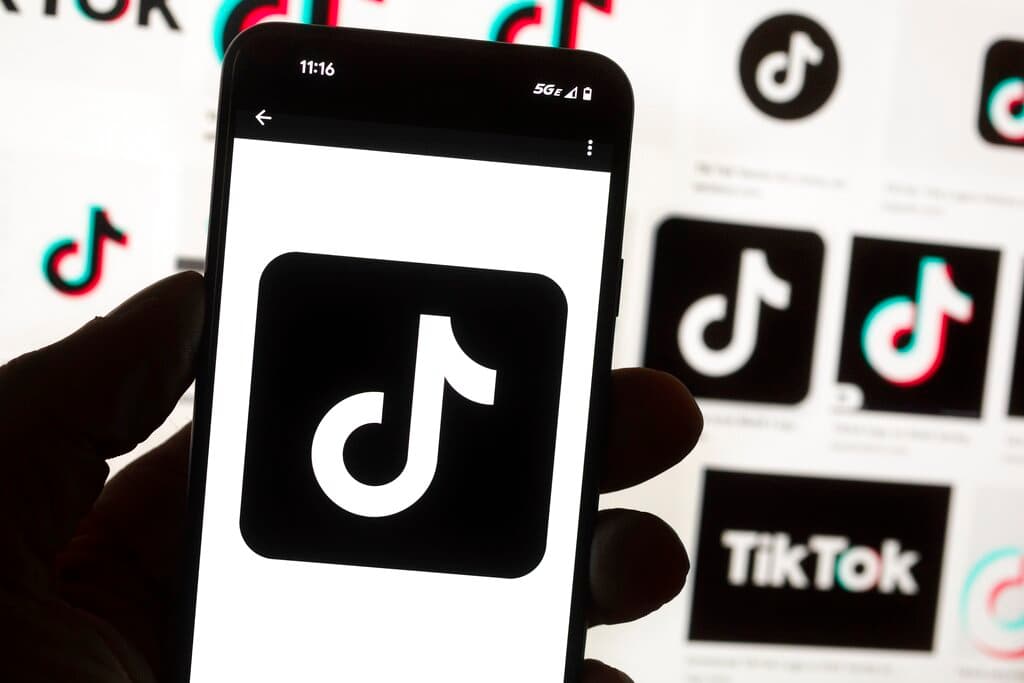Anti-Israel Content Is Flooding TikTok, and It’s Getting Quadruple the Views of Videos Supporting Israel
A 26-word section of the U.S. Code protects TikTok’s ability to propagate pro-Hamas content with ‘almost full immunity,’ an expert tells the Sun.

New data from TikTok show that pro-Palestinian videos are far outnumbering pro-Israeli videos and are gathering quadruple the views, spurring new questions in the growing debate over how the Chinese-owned app should be regulated.
There were 87,000 videos over the past week labeled with #standwithPalestine receiving 285 million views, Axios reported, while 9,000 posts tagged with #standwithIsrael received 64 million views.
The enormous gap in content and views could add fuel to efforts to crack down on TikTok, which has more than 1 billion monthly users worldwide and 150 million in America. The platform is now the preferred social media outlet for most Americans in their teens.
The recent surge of pro-Hamas content is leading to increasing calls to ban the app, including from Senator Cotton, who wrote that it’s “no surprise that TikTok — China’s spy app and propaganda tool — is pushing Hamas propaganda.”
Much of TikTok is being controlled by Hamas-supported bot farms, the founder of a venture capital firm, Jeff Morris Jr., suggested after looking at the platform’s algorithms, data, and tactics. “Israel is losing the TikTok war by a longshot,” he wrote on X.
The app’s algorithm makes it so that the more anti-Israel content that bot farms or Hamas supporters propagate, the more content creators are financially incentivized to support that narrative, he says.
Despite its growing popularity as a news source — Pew research shows 10 percent of all U.S. adults and 26 percent of adults 29 and younger regularly use the app for news — TikTok, like other social media giants, bears little legal responsibility for content published on its app.
That’s because of a small, 26-word section enacted as part of the 1996 Communications Decency Act that’s since shaped the internet by stating that no providers of “interactive computer services” can be treated as the “publisher or speaker” of information provided by content creators on the company’s platforms.
“The reality is that Section 230 — or at least how courts have interpreted it — gives TikTok carte blanche to elevate and silence any view, user, or content it wants,” the president of the Digital Progress Institute, Joel Thayer, tells The New York Sun.
The Second Circuit court held in Domen v. Vimeo Inc. that Section 230 gives interactive computer service providers a “broad” shield from liability, which allows them to restrict access to content it finds “objectionable,” Mr. Thayer notes.
“Thus, if TikTok wants to pitch pro-Hamas content, it can do that with almost full immunity,” he adds.
TikTok and other social media giants have long relied on Section 230 for legal protection. When 10-year-old Nylah Anderson died two years ago by choking herself as a result of a viral TikTok “blackout challenge,” a federal judge ruled Section 230 shielded TikTok from liability.
“The wisdom of conferring such immunity is something properly taken up with Congress, not the courts,” the judge, Paul Diamond, wrote in his ruling.
Since the outbreak of the Israel-Hamas war, concerns over Hamas weaponizing TikTok have been growing, and schools even urged students to delete the app amid concerns that the terrorist organization would broadcast beheadings through the app.
A search of “stand with Palestine” on TikTok populates a flood of anti-Israel content, including a video of one man who says it “broke” his heart to see “Star Wars” actor Mark Hamill stand with Israel. “It’s literally like seeing Luke Skywalker root for the empire,” the TikToker says.
Other videos show influencers, protesters, or other livestreamers refusing to condemn Hamas and defending acts of terrorism.
The social media giant is no stranger to controversy, especially over potential national security threats it poses due to the app’s ties to the Communist Chinese government. The company is being sued by Utah for alleged child addiction harm and is in the middle of a separate lawsuit over Montana’s statewide TikTok ban, as the Sun has reported.
A representative of TikTok did not respond to a request by the Sun for comment.

